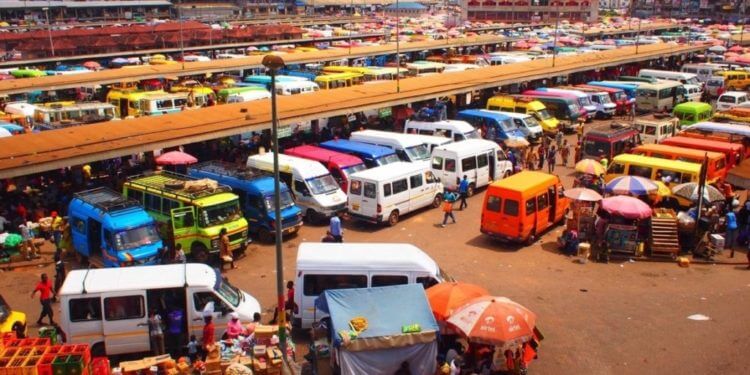The Ghana Private Road Transport Union, GPRTU has announced a 10% increment in transport fares in Ghana.
According to the GPRTU, the new transport fares takes effect from Monday September 16, 2019.
Justifying the reason for the increment, the Union said the various components that go into the running of commercial transport services have gone up.
“This is to accommodate predominantly an increase in fuel prices,” Kwame Kuma, the National Chairman of GPRTU said in a statement.
Also the increment has become necessary after the National Petroleum Authority (NPA) directed the Oil Marketing Companies to begin applying the revised Energy Sector Levies.
Futhermore other indicators that has pushed for the 10% increment include; the Road Fund Levy, Energy Debt Recovery Levy, as well as the Price Stabilization and Recovery Levy which has been increased to about 20 percent.
Transport fares were last increased by the GPRTU in April 2017 by 15 percent.
Nonetheless, the Chamber of Petroleum Consumers Ghana has stated that Increasing fuel taxes which will directly affect transport fares is ill-timed and completely insensitive.
ALSO READ: Visiting Ghana -Transportation in Ghana
In a statement signed by its Executive Secretary, Duncan Amoah, , it said, “this move at increasing fuel taxes is nothing but ill-timed, ill-advised and completely insensitive as its repercussions on the country and the people will far outweigh any benefits anticipated thereof from this needless increases.”
The OMCs are “demanding without delay, an immediate reversal and withdrawal of this recent hikes in order to make way for further dialogue on the current fuel price build-up with the view to reversing the recent unfortunate trend of persistent increases…”
Ghanatalksbusiness’ Analysis
Judging from the current state of the economy, it is indeed bad timing to announce a 10% increase in transport fares. A chunk of employees formerly in financial industry are reeling from job losses stemming from the massive shutdown of financial institutions.There are practically no jobs for school leavers, except for the few brave individuals who choose to go entrepreneurial. Such individuals are striving to build their businesses and make ends meet.
Job losses and unemployment imply low incomes. Further, the Ghanaian population can do without an additional hit from increase in transport fares, more so at the beginning of a new school year. Parents are already inundated with meeting school expenses, with some sources of income curtailed.
Our economic managers should do a better job to seal drains in national revenue. This will possibly minimize the introduction of numerous levies with its added repercussions










